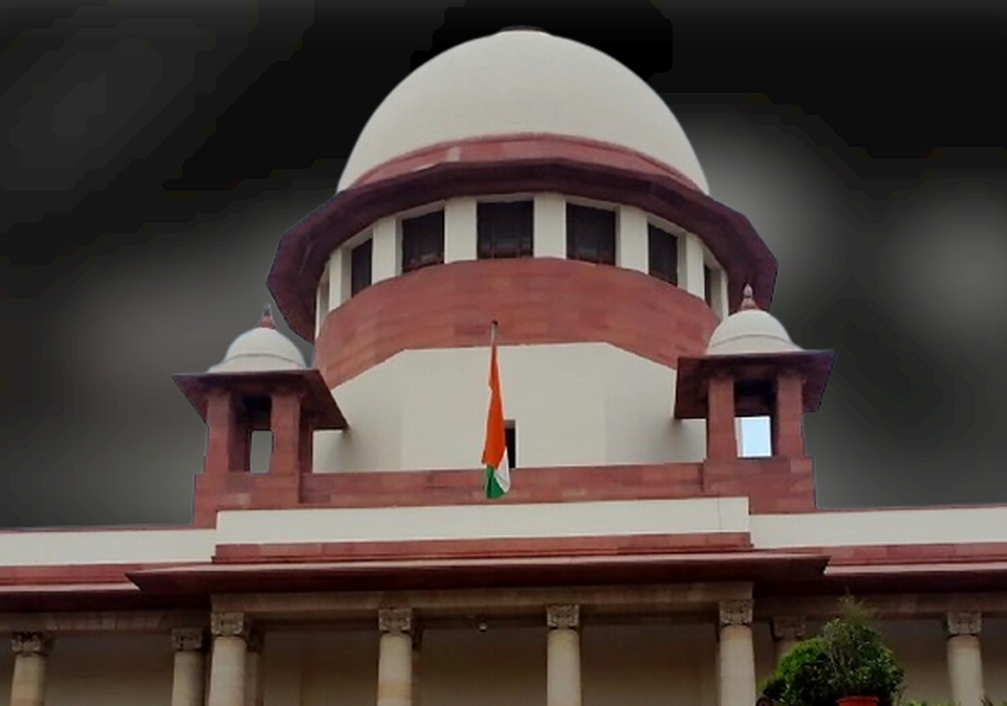Top Court upholds order granting custody of minor children to father serving as Colonel in Armed Forces; sheds light on role of Courts while handling cases of Parental Alienation Syndrome
Justices Vikram Nath & Satish Chandra Sharma [11-05-2024]

Read Order: COL. RAMNEESH PAL SINGH v. SUGANDHI AGGARWAL [SC- CIVIL APPEAL NO(S). 6137 OF 2024]
LE Correspondent
New Delhi, May 17, 2024: While observing that the Indian Armed Forces provide a robust support system to the kin of its officers,the Supreme Court has upheld the order of a Family Court granting custody of minor children to the father, serving as a Colonel in the Armed Forces, and providing visitation rights to the mother.The Apex Court also opined that Parental Alienation Syndrome (PAS) is a thoroughly convoluted and intricate phenomenon that requires serious deliberation.
The marriage between the Appellant, serving as a Colonel in the Indian Armed Forces and the Respondent, who is employed as a teacher in Delhi Public School, was solemnized in the year 2002.They have two minor children, a 15 year-old daughter (SSU) and a 12-year-old son (SSH).
In December 2013, the Appellant, having been promoted to the rank of Colonel in the Indian Armed Forces, was posted to serve in Jammu and Kashmir. Accordingly, it was decided that the Respondent together with the minor children would reside in New Delhi. The relationship between the parties deteriorated significantly and thereafter took a turn for the worst in the year 2015, forcing the Respondent to leave the matrimonial home along with the minor children.
Subsequently, the Respondent learnt that the minor children along with the Appellant were residing in Gulmarg, Jammu and Kashmir and were scheduled to move to Bikaner, Rajasthan in furtherance of the nature of the Appellant’s service. Aggrieved, the Respondent filed a petition under Section 7, 9 and 25 of the Guardian and Wards Act, 1890 before the Family Court seeking custody of the minor children.The Family Court had granted permanent custody of minor children to the Appellant and provided visitation rights to the Respondent.
The appeal preferred by the Appellant sought to assail the correctness of an order passed by a Division Bench of the Delhi High Court whereby the appeal preferred by the Respondent challenging the Family Court's order was partly allowed. Vide the impugned order, the High Court granted the parties shared custody of the minor children.
Referring to the judgment in V. Ravi Chandran (Dr.) (2) v. Union of India) [LQ/SC/2009/2029],the Division Bench of Justices Vikram Nath & Satish Chandra Sharma said, “It is well settled that the principal consideration of the Court whilst deciding an application for guardianship under the Act in exercise of its parens patriae jurisdiction would be the ‘welfare’ of the minor children.”
The Bench took note of the fact that the minor children i.e., SSU and SSH had interacted with the Family Court expressing their preference to reside with the Appellant. Additionally, it was observed that the minor children were doing well in the pursuit of their education and co-curricular activities whilst residing with the Appellant.
The Division Bench observed that the minor children expressed their clear desire to reside with the Appellant.The Top Court also on an earlier occasion had interacted with the minor children and they categorically stated that they were happy and wished to reside with their father only i.e., the Appellant.
The natural and consequential deduction from the aforesaid interactions between the minor children and various Courts over a period spanning over four years, was the unwavering and strong desire of the children to continue to reside with the Appellant.
Next, the Bench dealt with the contentions in relation to the nature of employment of the Appellant posing a challenge in the upbringing and welfare of the Minor Children.The Bench was unable to subscribe to the aforesaid view in light of the fact that the Indian Armed Forces provides a robust support system to the kin of its officers so as to ensure minimal disruption in the lives of the civilian members of an officer’s family.
According to the Bench, the High Court had failed to appreciate the intricacies and complexities of the relationship between the parties and accordingly, proceeded to entertain allegations of PAS on an unsubstantiated basis. PAS is a thoroughly convoluted and intricate phenomenon that requires serious consideration and deliberation. Referring to the judgment in Vivek Singh v. Romani Singh [LQ/SC/2017/223], the Bench said, “Courts must endeavour to identify individual instances of ‘alienating behaviour’ in order to invoke the principle of parental alienation so as to overcome the preference indicated by the minor children.”
Further, referring to the earlier orders, the Bench concluded that the minor children did not foster unbridled and prejudiced emotions towards the Respondent and the appellant could not have been said to have engaged or propagated ‘alienating behaviour’ as alleged by the Respondent.
The High Court failed to appreciate the aforesaid nuance and proceeded on an unsubstantiated assumption i.e., that allegations of parental alienation could not be ruled out, despite the stark absence of any instances of 'alienating behaviour' having been identified by any Court.
Thus, allowing the appeal and setting aside the impugned order, the Bench held, “In view of the aforesaid discussion, we consider it just and appropriate that the custody of the Minor Children is retained by the Appellant, subject to the visitation rights of the Respondent as granted by the Family Court vide the Underlying Order i.e., the final order dated 22.08.2020.”
Sign up for our weekly newsletter to stay up to date on our product, events featured blog, special offer and all of the exciting things that take place here at Legitquest.




Add a Comment